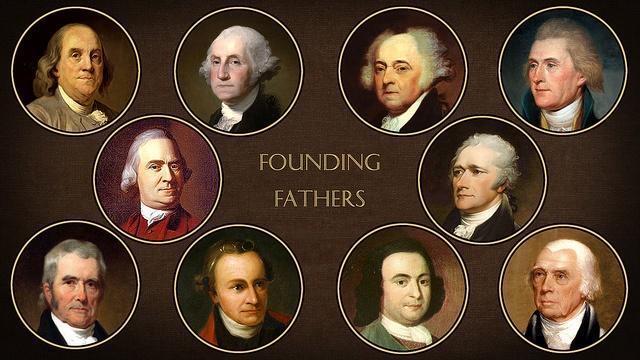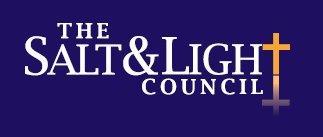

The Founding Fathers on the Importance
of Religion and Virtue for a Free Society
“Religion is the only solid basis of good morals, therefore education should teach the precepts of religion, and the duties of man towards God.” Gouverneur Morris (1832). Cited in Jared Sparks, The life of Gouverneur Morris. Boston, MA: Gray and Bowen, Vol. III, p.483.
“Let divines and philosophers, statesmen and patriots unite their endeavors to renovate the age, by impressing the minds of men with the importance of educating their boys and girls, of inculcating in the minds of youth the fear and love of the Deity… in short of leading them in the study and practice of the exalted virtues of the Christian system.” Samuel Adams, “Letter of Samuel Adams to John Adams, October 4, 1790,” in The Writings of Samuel Adams, ed. Harry A. Cushing (New York: Octagon Books, Inc., 1968), 4:343.
“In contemplating the political institutions of the United States, I lament that we waste so much time and money in punishing crimes, and we take so little pains to prevent them. We profess to be republicans and yet we neglect the only means of establishing and perpetuating our republican forms of government. That is, the universal education of our youth in the principles of Christianity by the means of the Bible.” Benjamin Rush, Essays, Literary, Moral & Philosophical (Philadelphia: Thomas and Samuel F. Bradford, 1798), 112.
“Article III. Religion, morality and knowledge, being necessary to good government and the happiness of mankind, schools and the means of education shall be forever by encouraged.” July 13, 1787 F.N. Thorpe, ed., Federal and State Constitutions (Washington: GPO, 1909), 2: 957.
“In my view, the Christian Religion is the most important and one of the first things in which all children, under a free government, ought to be instructed… no truth is more evident to my mind than that the Christian Religion must be the basis of any government intended to secure the rights and privileges of a free people.” Noah Webster. Cited in Harry A. Warfel (Ed.), Letters. To David McClure, October 25, 1836. New York: NY: Library Publishers. pp. 453-454.
“Of all the dispositions and habits which lead to political prosperity, religion and morality are the indispensable supports… In vain would that man claim the tribute of patriotism who should labor to subvert these great pillars of human happiness, these firmest props of the duties of men and citizens.” George Washington – Farewell Address Sept 17, 1796. The Will of the People: Readings in American Democracy (Chicago: Great Books Foundation, 2001), 38.
“The great pillars of government and social life [are] virtue, morality and religion. This is the armor… and this alone, that renders us invincible.” Patrick Henry – Letter to Archibald Blair, Jan 8 1799. Moses Coit Tyler, Patrick Henry (New York: Houghton Mifflin Co., 1898; reprint, Ithaca: Cornell University Press,1962), 409.
“The American’s combine the notions of Christianity and liberty so intimately in their minds that it is impossible to make them conceive one without the other.” “The religious atmosphere of the country was the first thing that struck me upon my arrival in the U.S. In France, I had seen the spirits of religion and freedom almost always marching in opposite directions, I found them intimately linked together and joined and reigned over the same land…” “Religion should therefore be considered as the first of their political institutions. From the start, politics and religion have agreed and have not ceased to do so.” Toqueville, Alexis de (1994). Democracy in America. New York, NY: Everyman’s Library, a division of Knopf and Random House Publishing.
“…only a virtuous people are capable of freedom. As nations become corrupt and vicious they have more need of masters.” Letter of Benjamin Franklin to Messrs. The Abbes Chalut and Arnaud, dated April 17, 1787. Jared Sparks, ed., The Writings of Benjamin Franklin (Boston: Tappan, Whittemore and Mason, 1840) 10:297.
“…the moral principles contained in the Scriptures ought to form the basis of all our civil constitutions and laws… All the miseries and evils which men suffer from vice, crime, ambition, injustice, oppression, slavery and war, precede from their despising or neglecting the precepts contained in the Bible.” Noah Webster, “Advice to the Young,” History of the United States, (New Haven: Durrie & Peck, 1832), 338-340.
“We have no government armed in power capable of contending in human passions unbridled by morality and religion… Our Constitution was made only for a moral and religious people. It is wholly inadequate to the government of any other.” John Adams, Address to the Officers of the Massachusetts Militia, 1798
“But I go on this great republican principle, that the people will have virtue and intelligence to select men of virtue and wisdom. Is there no virtue among us? If there be not, we are in a wretched situation. No theoretical checks–no form of government can render us secure. To suppose that any form of government will secure liberty or happiness without any virtue in the people, is a chimerical idea. If there be sufficient virtue and intelligence in the community, it will be exercised in the selection of these men. So that we do not depend on their virtue, or put confidence in our rulers, but in the people who are to choose them.” James Madison
“Statesmen, my dear Sir, may plan and speculate for liberty, but it is religion and morality alone, which can establish the principles upon which freedom can securely stand. The only foundation of a free constitution is pure virtue.” John Adams, “Letter to Zabdiel Adams, Philadelphia, 21 June 1776,” in The Works of John Adams – Second President of the United States, ed. Charles Francis Adams (Boston: Little, Brown & Co., 1854), 9:401.
“To preserve the government we must also preserve morals. Morality rests on religion, if you destroy the foundation, the superstructure must fall. When the public mind becomes vitiated and corrupt, laws are a nullity and constitutions are but waste paper.” Daniel Webster, Fourth of July Oration Delivered at Fryeburg, ME, in the Year 1802 (A. Williams & Co. / A.F. & C.W. Lewis, Boston, Mass. / Fryeburg, Me., 1882), 12.
“Human law must rest its authority ultimately upon the authority of that law which is Divine… Far from being rivals or enemies, religion and law are twin sisters, friends, and mutual assistants.” James Wilson (A Supreme Court Justice who signed the Constitution) “Of the General Principles of Law and Obligation” Wilson, James (1804). The works of the honourable James Wilson. Philadelphia, PA: Lorenzo Press for Bronson and Chauncey (3 Vols.).
“It is alleged by men of loose principles, or defective views of the subject, that religion and morality are not necessary or important qualifications for political station. When a citizen gives his vote to a man of immorality, he abuses his civic responsibility. He sacrifices not only his own interest but that of his neighbor, and he betrays the interest of his country.” Noah Webster Value of the Bible, 1834, #302 Noah Webster, Letters to a Young Gentleman Commencing His Education (New Haven, S. Converse, 1823) 18-19
ART. 22. Every person who shall be chosen a member of either house, or appointed to any office or place of trust, before taking his seat, or entering upon the execution of his office, shall take the following oath, or affirmation, if conscientiously scrupulous of taking an oath, to wit:
” I, __________. do profess faith in God the Father, and in Jesus Christ His only Son, and in the Holy Ghost, one God, blessed for evermore; and I do acknowledge the holy scriptures of the Old and New Testament to be given by divine inspiration.”
“How has it happened, Sir, that we have not hitherto once thought of humbly applying to the Father of lights to illuminate our understandings? In the beginning of the Contest with G. Britain, when we were sensible of danger we had daily prayer in this room for the divine protection.- Our prayers, Sir, were heard, & they were graciously answered. All of us who were engaged in the struggle must have observed frequent instances of a superintending providence in our favor. To that kind providence we owe this happy opportunity of consulting in peace on the means of establishing our future national felicity. And have we now forgotten that powerful friend? or do we imagine that we no longer need his assistance? I have lived, Sir, a long time, and the longer I live, the more convincing proofs I see of this truth- that God Governs in the affairs of men. And if a sparrow cannot fall to the ground without his notice, is it probable that an empire can rise without his aid? We have been assured, Sir, in the sacred writings, that “except the Lord build the House they labour in vain that build it.” I firmly believe this; and I also believe that without his concurring aid we shall succeed in this political building no better, than the Builders of Babel: We shall be divided by our little partial local interests; our projects will be confounded, and we ourselves shall become a reproach and bye word down to future ages. And what is worse, mankind may hereafter from this unfortunate instance, despair of establishing Governments by Human wisdom and leave it to chance, war and conquest.”
“I therefore beg leave to move-that henceforth prayers imploring the assistance of Heaven, and its blessings on our deliberations, be held in this Assembly every morning before we proceed to business, and that one or more of the Clergy of this City be requested to officiate in that Service.” Benjamin Franklin, Constitutional Convention June 28, 1787. James Madison, Notes on the Debates in the Federal Convention of 1787 Reported by James Madison (New York: W.W. Norton & Company, Inc., 1966), 209-210.

